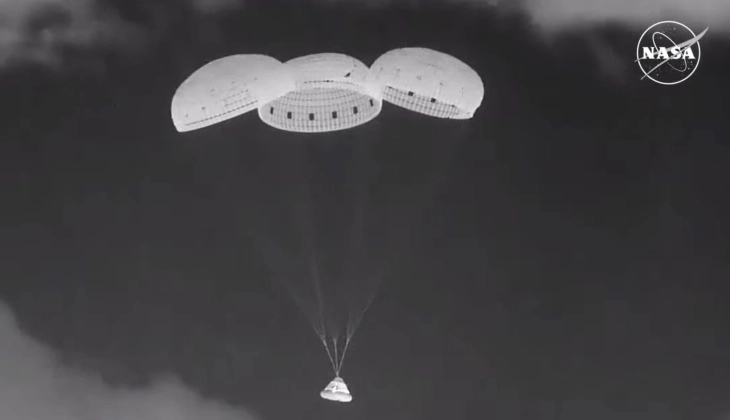Troubled Starliner spacecraft safely back on Earth, crew still on ISS
- The Boeing-produced Starliner spacecraft landed back on Earth after setting off from the International Space Station (ISS) without its crew following numerous technical problems.

Washington, 7 September 2024 (dpa/MIA) — The Boeing-produced Starliner spacecraft landed back on Earth after setting off from the International Space Station (ISS) without its crew following numerous technical problems.
The spacecraft undocked from the space outpost at 6:04 pm on Friday (2204 GMT) after three months in space. It landed at White Sands Space Harbor in the US state of New Mexico at at 0:01 am, a NASA live stream showed.
NASA astronauts Barry Wilmore and Suni Williams, who travelled to the ISS aboard the Starliner in June, remained in space following engine problems and helium leaks on the spacecraft. Their stay was only meant to last one week.
NASA boss Bill Nelson cited safety concerns when he announced the decision to bring the Starliner back to Earth without its crew.
Wilmore and Williams are now set to fly home in February 2025 aboard a SpaceX Dragon capsule heading to the ISS no earlier than September 24. Two NASA astronauts have been bumped off that flight to make space for Wilmore and Williams on its return journey.
The Boeing-produced Starliner is a partially reusable spacecraft that consists of a capsule around 3 metres high for the crew and a service module.
Unlike the Crew Dragon vehicle built by Elon Musk's SpaceX company, the Starliner does not land on water but on dry land.
The landing feature is similar to NASA's former workhorse spacecraft, the Space Shuttle, the last of which was retired in 2011.
Now back on Earth, Starliner is to be analysed and improved. For example, enlarging seals to prevent helium leaks and taking steps to prevent the overheating of the propulsion system.
The next Starliner will not take place in February as planned, but has been postponed to August 2025, ISS manager Dana Weigel said.
NASA officials emphasized, however, that they would continue to work with Boeing as well as Boeing's rival SpaceX.







